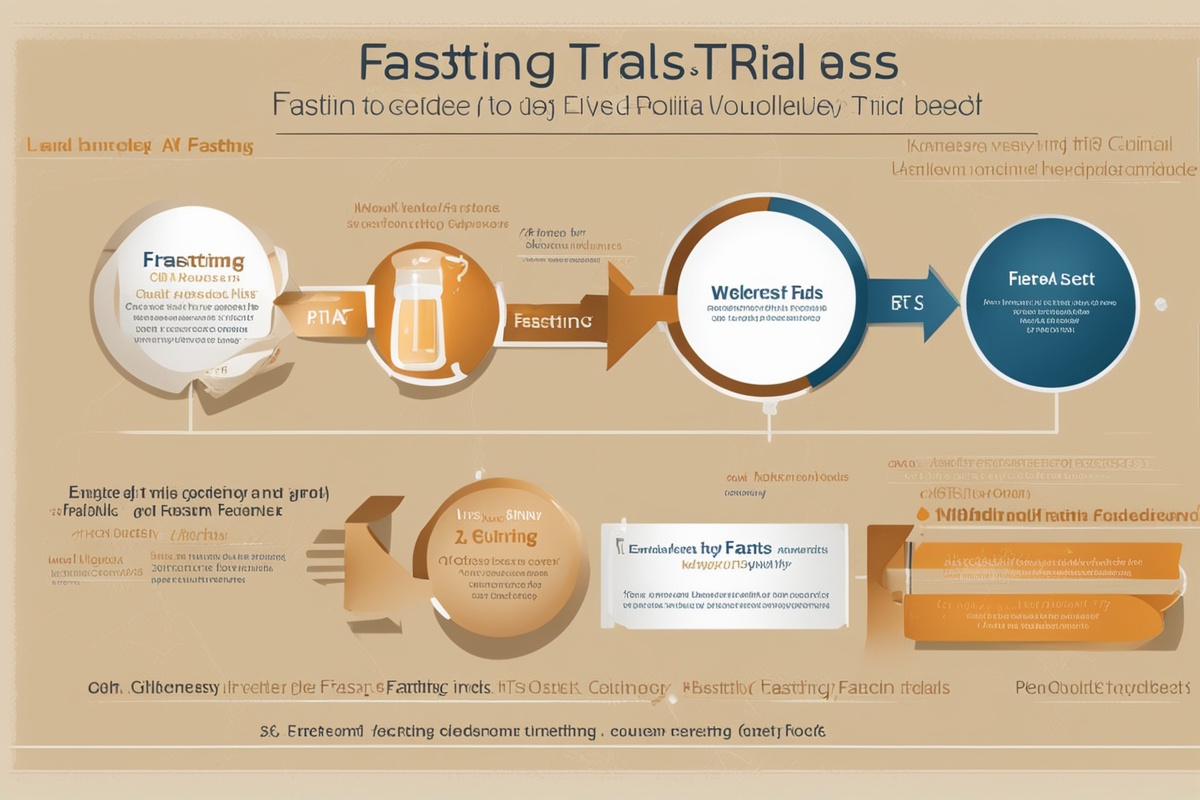Intermittent fasting (IF) has gained significant attention in recent years as a dietary approach that alternates between periods of eating and fasting. Researchers and health enthusiasts alike are eager to understand the potential benefits of this practice through various clinical trials. One key focus of these studies is the exploration of intermittent fasting health benefits, with numerous trials shedding light on how this eating pattern might improve overall well-being. In this post, we dive deep into the findings of the latest intermittent fasting health benefits study efforts, unpacking their implications for health and lifestyle.
What Is Intermittent Fasting?
Intermittent fasting is not a diet in the traditional sense but rather an eating pattern that cycles between periods of fasting and eating. Common methods include the 16/8 approach (fasting for 16 hours and eating during an 8-hour window) and the 5:2 method (eating normally for five days and restricting calories on two non-consecutive days). The growing interest in IF has led to an increase in clinical trials, including many an intermittent fasting health benefits study, to determine its impact on metabolism, weight loss, and chronic disease prevention. Understanding the science behind IF is crucial for anyone considering this approach.
Key Findings from Recent Intermittent Fasting Health Benefits Studies
Recent research, including a prominent intermittent fasting health benefits study published in reputable journals, has highlighted several potential advantages of IF. These studies often focus on weight management, with results showing that IF can help reduce body fat while preserving lean muscle mass. Additionally, IF has been linked to improved insulin sensitivity, which could play a role in preventing type 2 diabetes. Other findings suggest benefits for heart health, including reduced blood pressure and improved cholesterol levels. These outcomes underscore why IF continues to be a focal point in nutritional science.
For more insights into related research, check out our post on Fasting and Metabolism Studies, which explores how fasting impacts metabolic rates.
Impact on Brain Health and Cognitive Function
Another exciting area of research in intermittent fasting health benefits studies is the effect of IF on brain health. Some clinical trials have indicated that fasting may promote the production of brain-derived neurotrophic factor (BDNF), a protein associated with cognitive function and neuroplasticity. This could potentially lower the risk of neurodegenerative diseases like Alzheimer’s. While more research is needed, these preliminary findings suggest that IF might offer protective benefits for the brain, making it a promising area for future exploration.
Learn more about fasting’s impact on mental clarity in our article on Fasting for Mental Health.
Intermittent Fasting and Longevity: What Studies Suggest
One of the most intriguing aspects of IF research is its potential link to longevity. Animal studies have shown that fasting can extend lifespan by triggering cellular repair processes like autophagy, where cells remove damaged components. While human trials are still in early stages, an intermittent fasting health benefits study or two have suggested that IF might reduce markers of aging and inflammation. These findings are encouraging, though scientists caution that long-term data is necessary to draw definitive conclusions about IF’s role in extending human life.
For a deeper dive into aging and diet, read our related post on Dietary Restrictions and Longevity.
Potential Risks and Considerations from Clinical Trials
While the benefits of IF are promising, clinical trials also highlight potential risks and considerations. Some participants in fasting studies report side effects like irritability, fatigue, and hunger during initial fasting periods. Additionally, IF may not be suitable for everyone, particularly those with certain medical conditions or eating disorders. Researchers emphasize the importance of personalized approaches and medical supervision when adopting IF. Understanding these limitations is just as critical as exploring the positives when reviewing any intermittent fasting health benefits study.
How to Get Started with Intermittent Fasting Safely
If you’re inspired by the findings of intermittent fasting health benefits studies and want to try IF, it’s essential to start slowly and consult with a healthcare provider. Begin with a less restrictive method, such as the 16/8 approach, and monitor how your body responds. Stay hydrated, prioritize nutrient-dense foods during eating windows, and avoid overeating. Safety should always come first, and tailoring IF to your lifestyle and health needs can maximize its potential benefits.
For additional tips on fasting safely, explore our guides on Beginner’s Guide to Fasting and Fasting Safety Tips.
Disclaimer: This content is for informational purposes only and not a substitute for professional medical advice. Always consult with a qualified healthcare provider before starting any new dietary or fasting regimen to ensure it is safe and appropriate for your individual health needs.
References
- Effects of Intermittent Fasting on Health, Aging, and Disease – New England Journal of Medicine
- Intermittent Fasting: The Science of Going Without – National Institutes of Health
- Intermittent Fasting: Surprising Update – Harvard Health Publishing
- Intermittent Fasting: What Is It, and How Does It Work? – Mayo Clinic
- Intermittent Fasting Confers Protection in CNS Autoimmunity – Cell Metabolism






